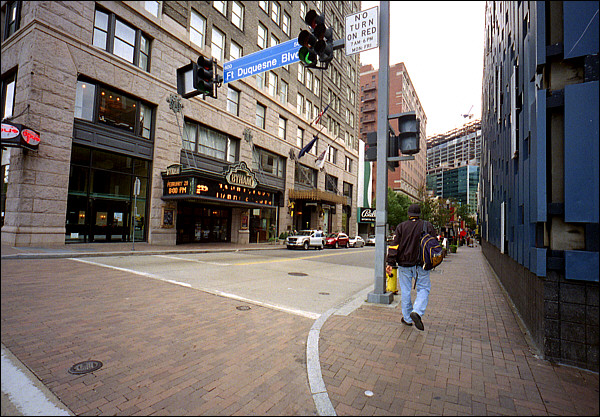The camera is known as the Zeiss Ikon Contarex Hologon Ultrawide.
It was based on the Zeiss Ikon Contarex and shares some of the accessories, such as the film spool and interchangeable backs. It also uses the same cloth focal-plane shutter and when released has the trademark Contarex sound. You change the shutter speed to adjust for correct exposure.
The Carl Zeiss Hologon is a fixed-aperture, nonfocusing f/8.0 15mm lens. Depth of field is from 0.5 meters to infinity, and the angle of view is 110 degrees.
There is a small bubble level that is visible from the top of the camera and from within the viewfinder. The viewfinder, I believe, has seven glass elements (more complex than some lenses).
When Zeiss Ikon folded in the early 1970s, Carl Zeiss completed assembly of some of the cameras. Those cameras (marked as Carl Zeiss, rather than Zeiss Ikon) are quite rare. Truly rare and not eBay "rare."
Later, Carl Zeiss refitted some of the lens elements to the M mount.
It was always a 15mm lens. The Hologon available for the Contax G system is 16mm.
The complete kit includes the grip and cable release, a center-spot filter and a handsome case.
I've shot this camera several times, and the grip is a big help to avoid photographing your knuckles.
My writeup.
A recent photo. Taken with Kodak Gold 100:



